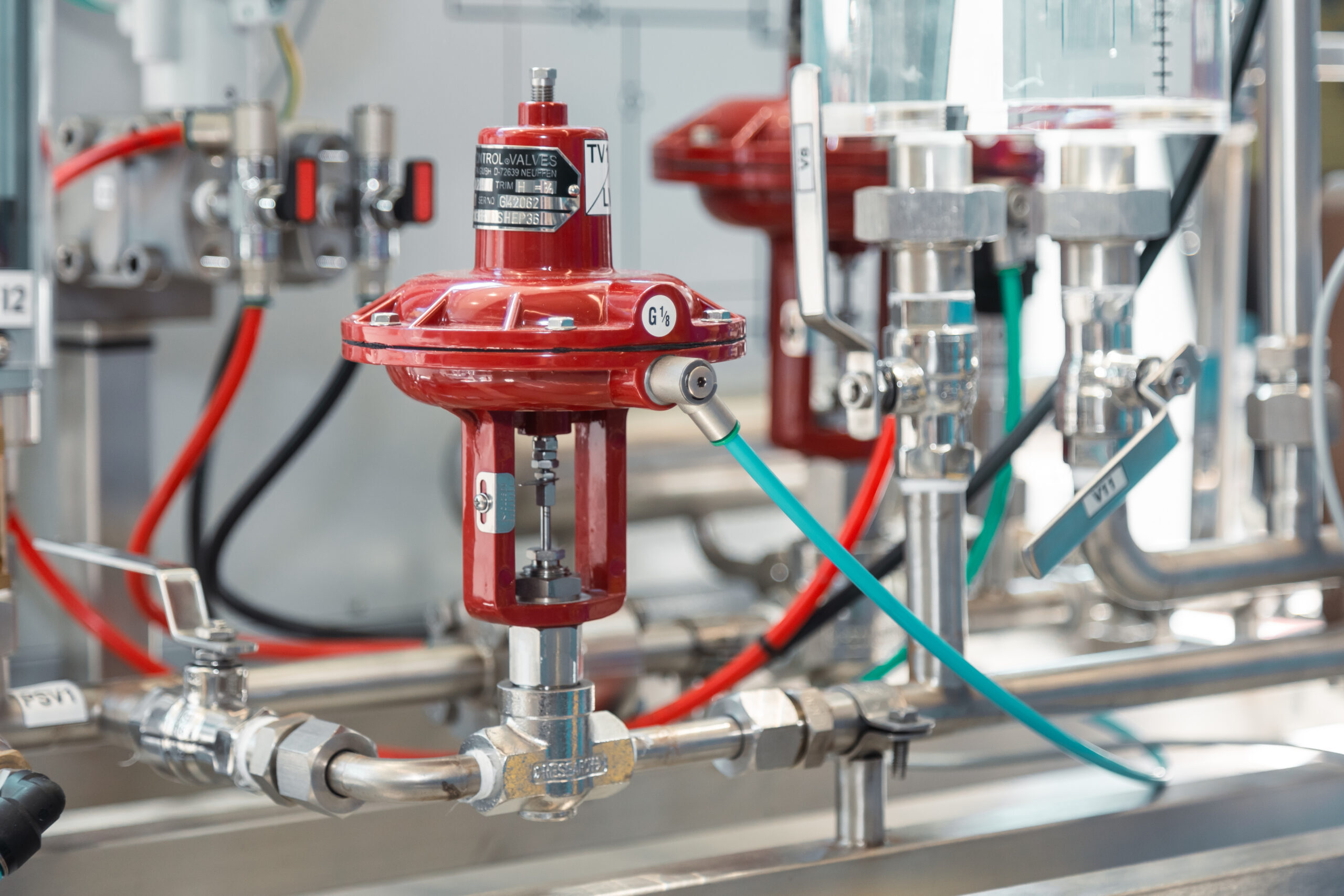
Circular Economy Technology Hub Clean Tech Sandbox
Advancing
the Circular Economy
Pioneering a Circular Future
The Circular Economy Technology Hub (CETH) is accelerating Australia’s clean tech innovation
This visionary initiative unites industry, government, academia, and community to collaboratively decarbonise. Leveraging Process Systems Engineering and digital innovation, the CETH scales research capacity and capabilities to deliver transformative circular solutions for society.
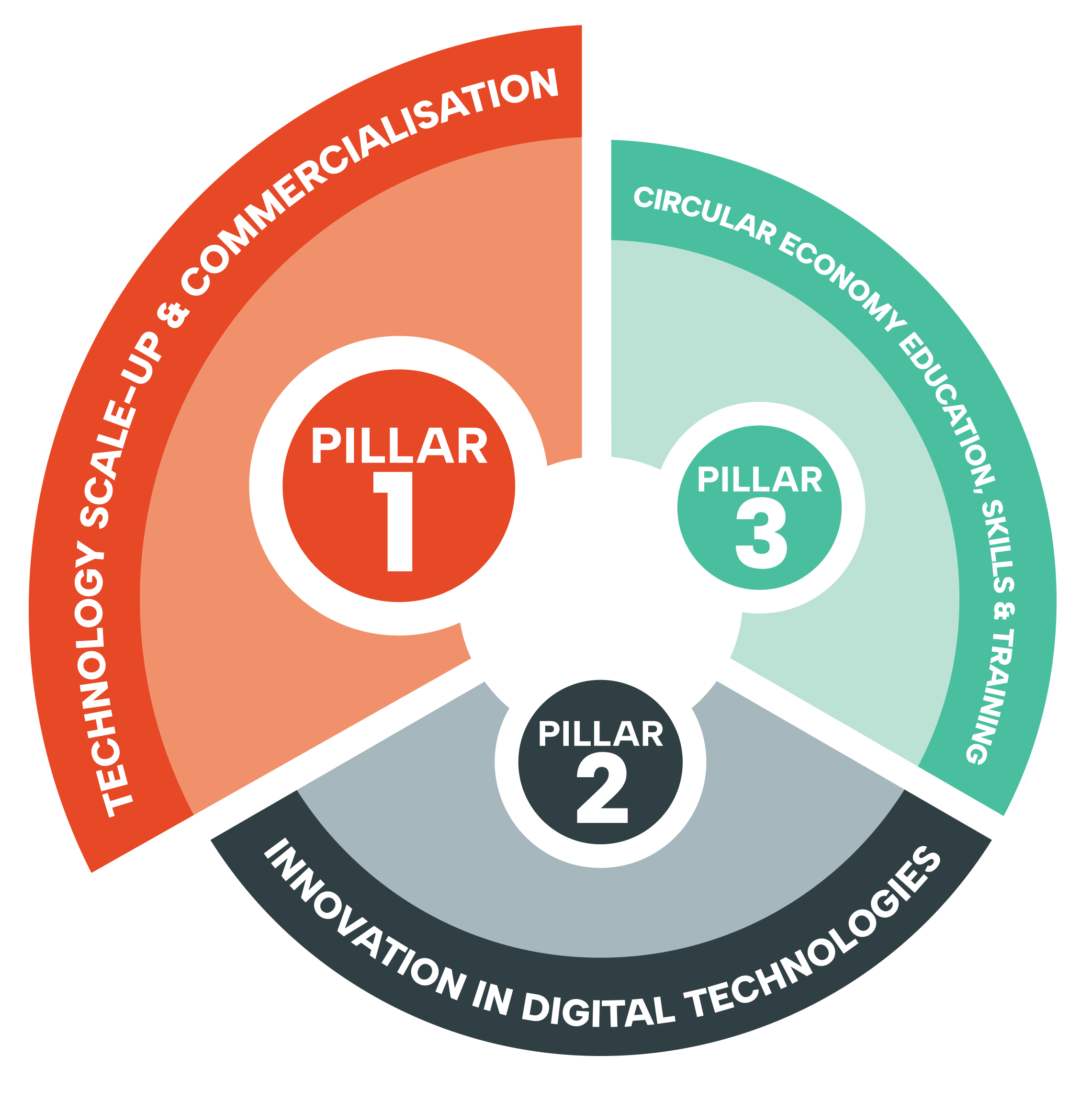
A key component of the Circular Economy Technology Hub is the Clean Tech Sandbox, a pioneering facility designed to accelerate the scale-up and commercialisation of waste transformation and clean energy innovations within a Circular Economy framework.
Strategically located at the Parkes Special Activation Precinct (SAP) in NSW, the Sandbox bridges the critical gap between R&D and full-scale commercialisation, known as the “valley of death”. By providing place-based infrastructure for piloting and testing, the Sandbox supports small and medium-sized enterprises (SMEs) and scale-ups in fast tracking decarbonisation technologies.
The Circular Economy Technology Hub is expected to generate significant economic, environmental, and social impact – fuelling job growth, upskilling regional workforces, slashing emissions, and fostering partnerships. Fast tracking affordable sustainable production and clean energy, and next-gen infrastructure, it propels Australia towards the UN’s Sustainable Development Goals.
Accelerating innovation, mitigating risks
The Clean Tech Sandbox creates a specialised, controlled environment to test lesser-known, Australian and imported technologies on a pre-commercial scale
By mimicking real-world operations in a sandboxed setting, it facilitates exploration, investigation, and validation of Circular Economy solutions while minimising environmental and financial risks.
The Sandbox is scalable and modular, with each unit capable of testing up to six projects at once. Additional modules can be added to increase capacity, allowing the Sandbox to support more projects. This flexible structure is grounded in Circular Economy principles and Process Systems Engineering rigor. Sandboxing activities initiate technology development from TRL 6 and offer accelerated commercialisation scale-up towards TRL 9.
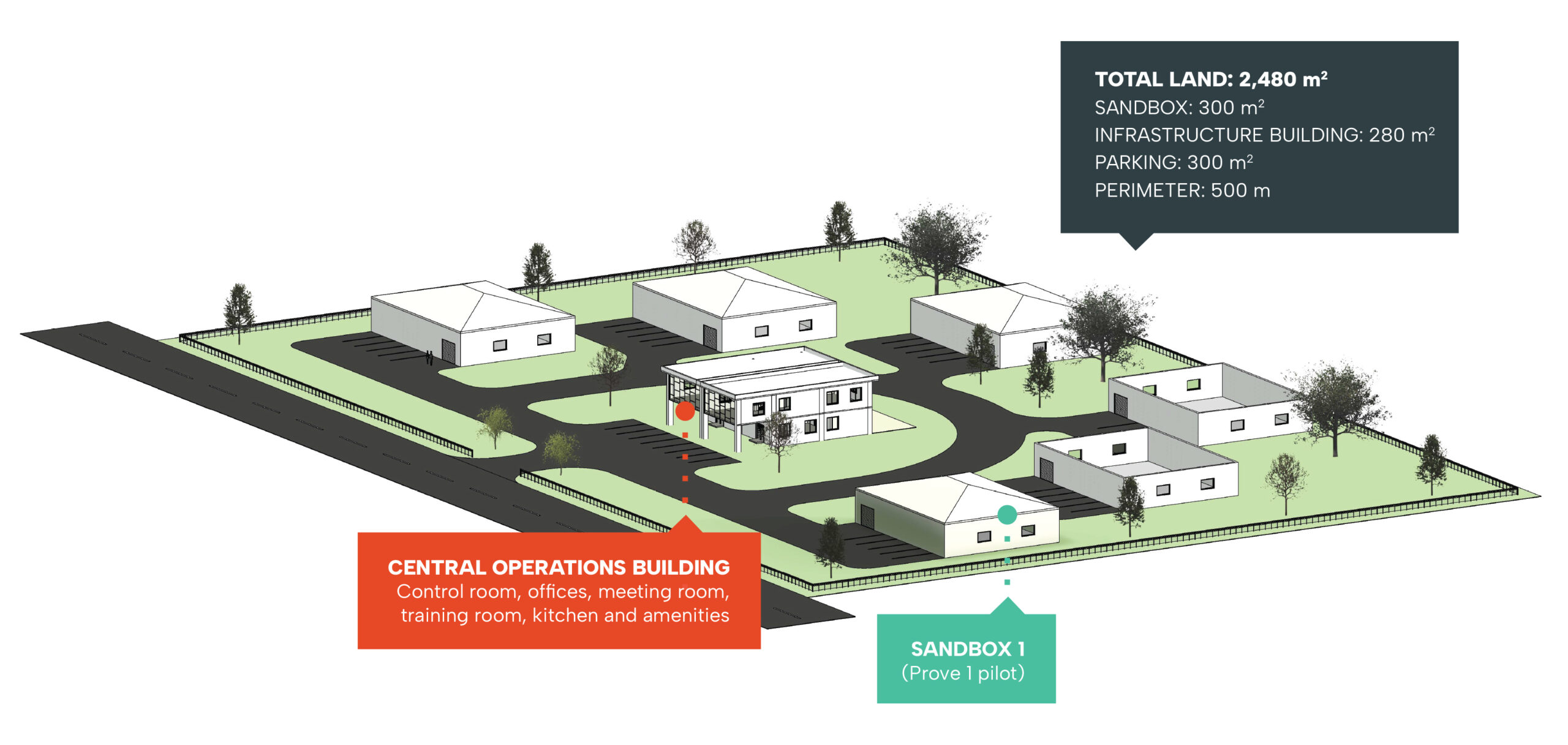
The Sandbox serves several critical functions:
 Capability building and skilling in process engineering for regional advancement
Capability building and skilling in process engineering for regional advancement
 Risk mitigation, from technical, environmental, and financial perspectives
Risk mitigation, from technical, environmental, and financial perspectives
 Acceleration of innovation, through quicker iteration and learning cycles
Acceleration of innovation, through quicker iteration and learning cycles
 Regulatory adaptation, informed by concrete data and performance metrics
Regulatory adaptation, informed by concrete data and performance metrics
 Stakeholder engagement, including investors, industry partners, and the public
Stakeholder engagement, including investors, industry partners, and the public
 Demonstration and validation, enhancing a technology’s circularity and attractiveness to investors and industry adopters
Demonstration and validation, enhancing a technology’s circularity and attractiveness to investors and industry adopters
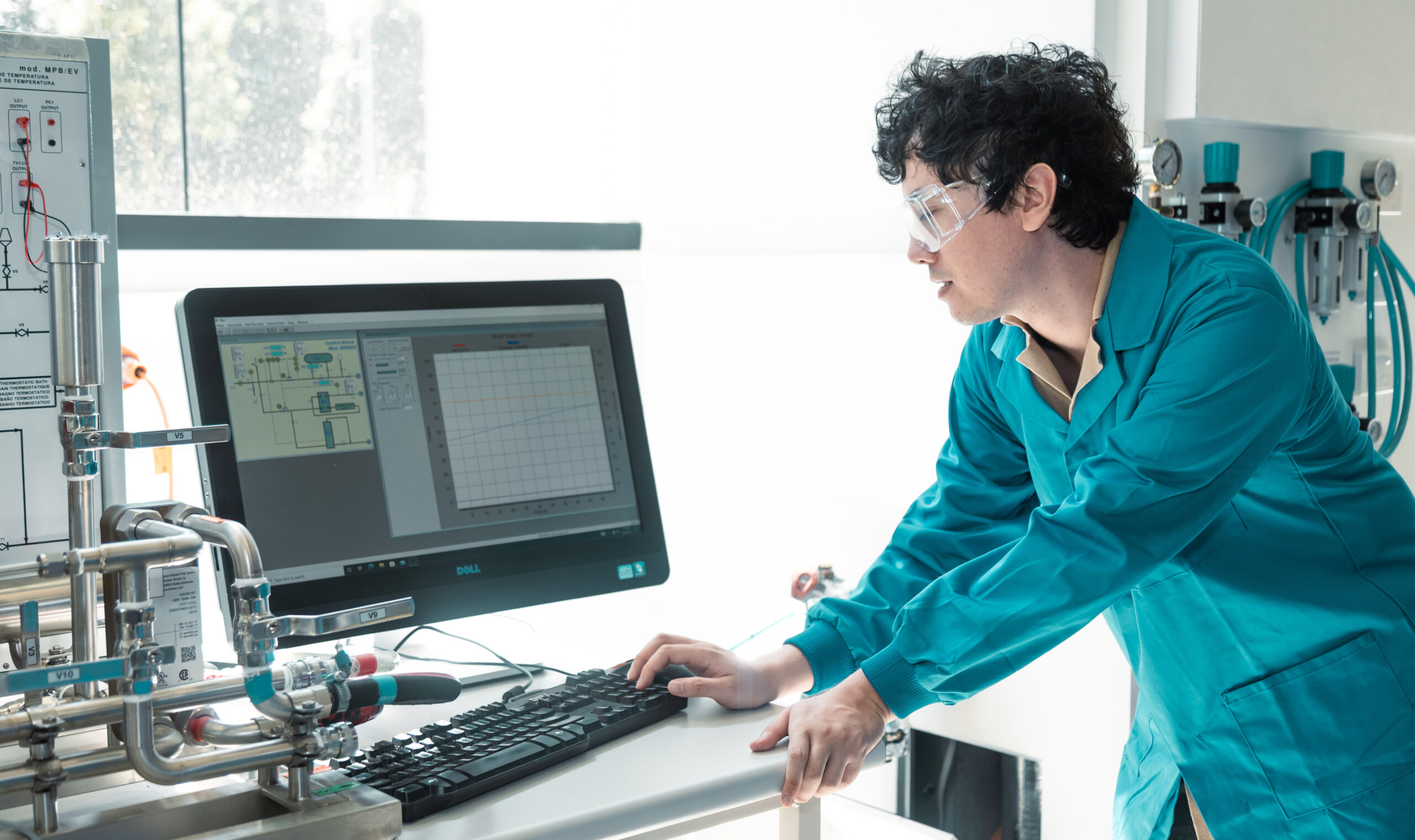
Overcoming the valley of death
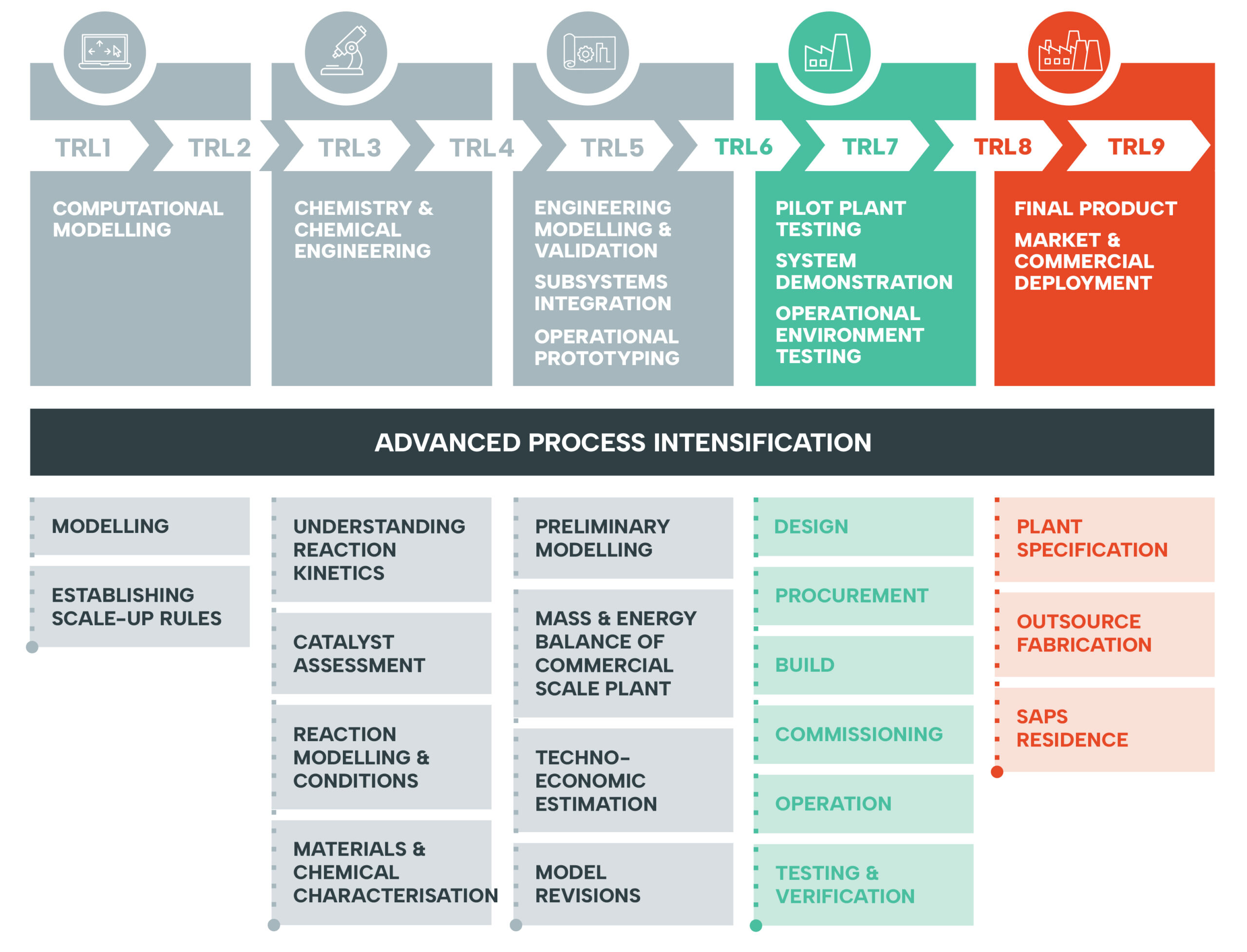
Waste management and recycling are highly regulated industries, stifling emerging innovations.
These challenges pose high entry barriers to novel processing and remanufacturing technologies being deployed at commercial scale in NSW. This “valley of death” hampers the maturation of the Circular Economy in the state.
The Sandbox addresses this challenge that paralyses the growth of scale-ups, SMEs, and technology-based ventures by offering:
 Comprehensive engineering support to prototype, test, and validate technologies with strong decarbonisation potential
Comprehensive engineering support to prototype, test, and validate technologies with strong decarbonisation potential
 Enhanced training and education in the Circular Economy and manufacturing
Enhanced training and education in the Circular Economy and manufacturing
 Bespoke process engineering clean tech solutions
Bespoke process engineering clean tech solutions
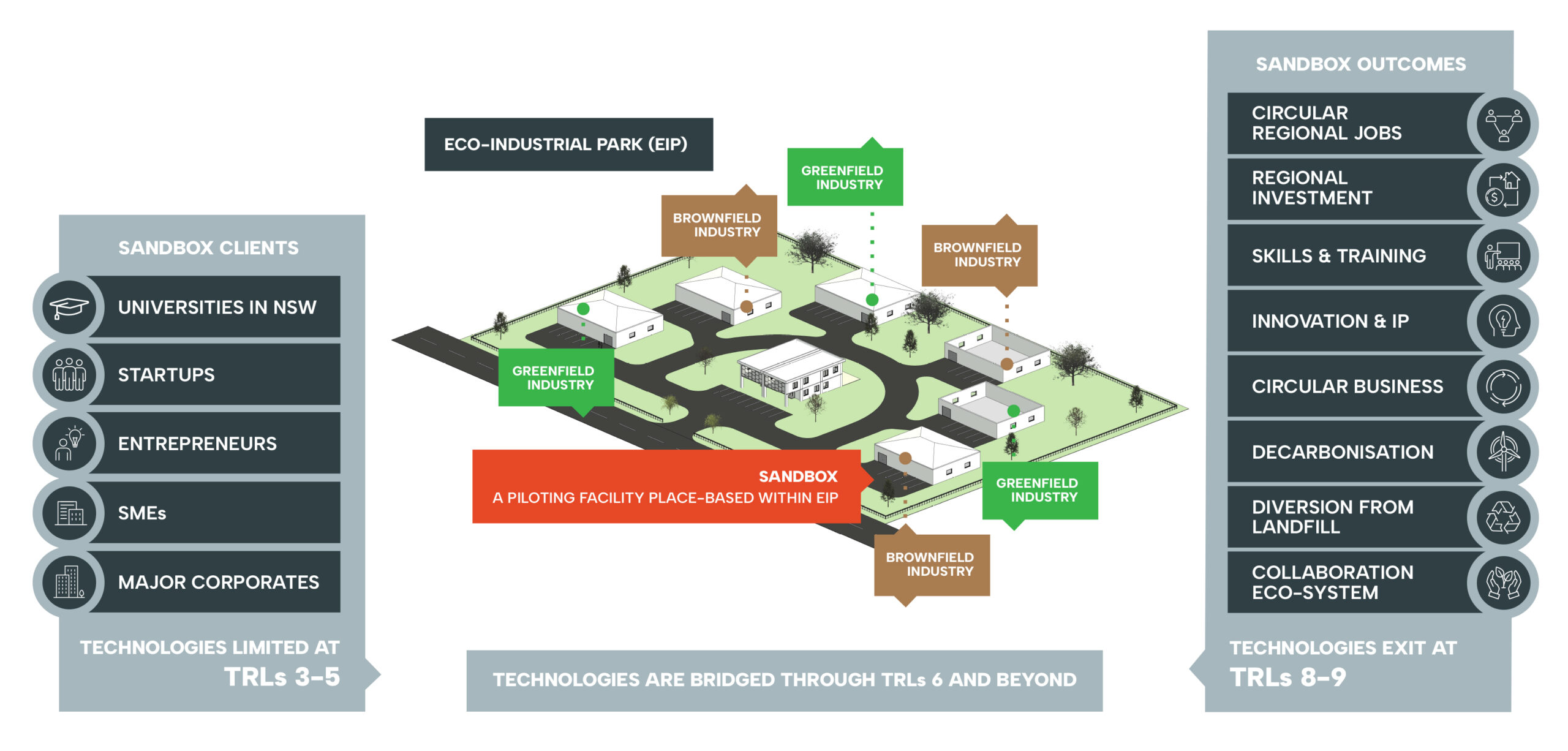
Clean Tech Sandbox and special activation precincts, a symbiotic relationship
This project differs from a typical commercial pilot plant by being fully integrated within the SAP.
Parkes SAP is the ideal location for the Clean Tech Sandbox owing to its focus on sustainable Circular Economy industrial development. The Sandbox will plug into renewable-based utilities and applies Circular Economy technology innovations, such as transforming waste into high-value products via thermal or biological processes, or into energy, hydrogen, or fuels.
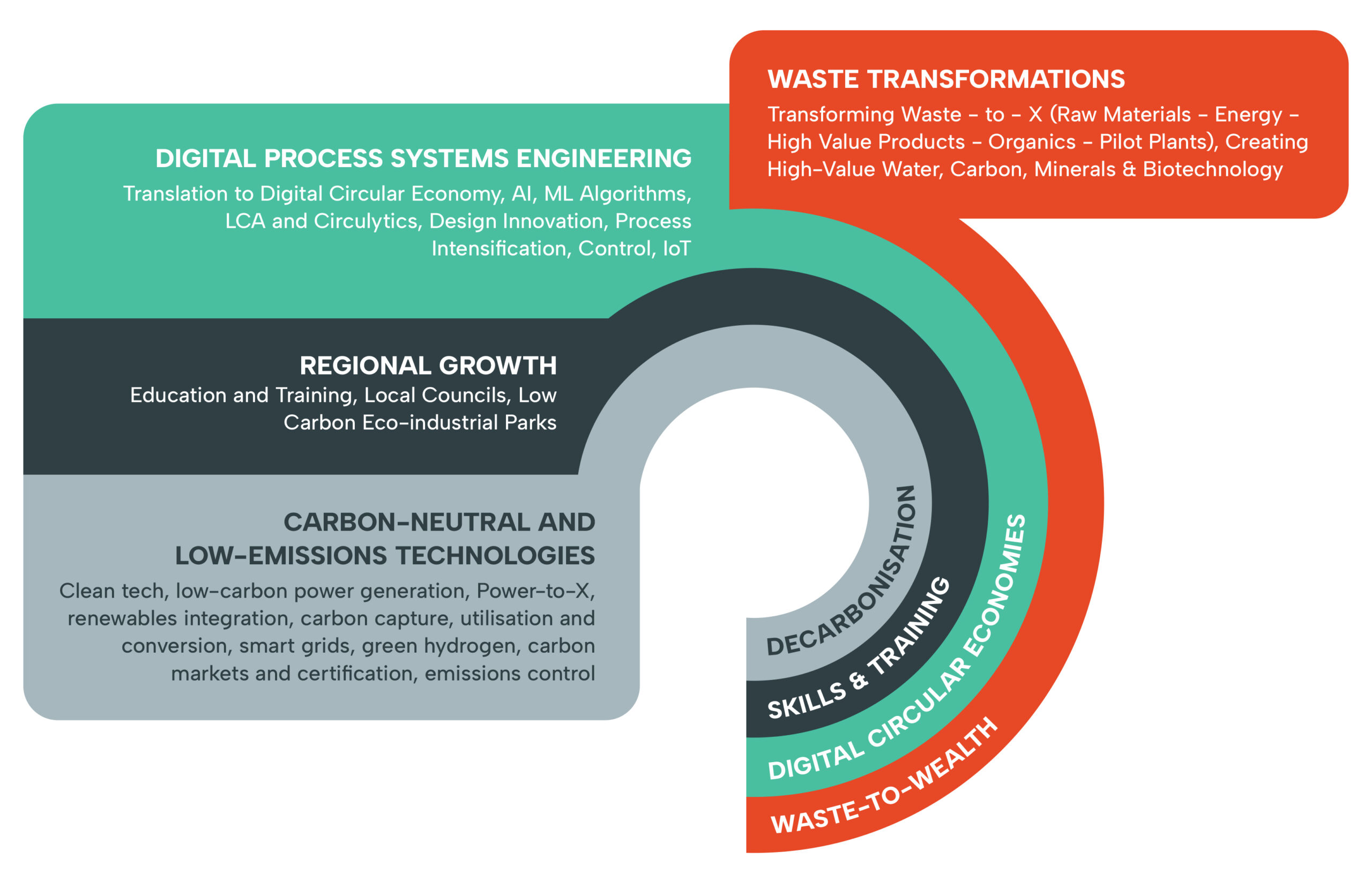
The Sandbox will help support decarbonisation efforts, cultivate technical skills in regional NSW, bolster Circular Economy technologies, and transform waste into useful resources
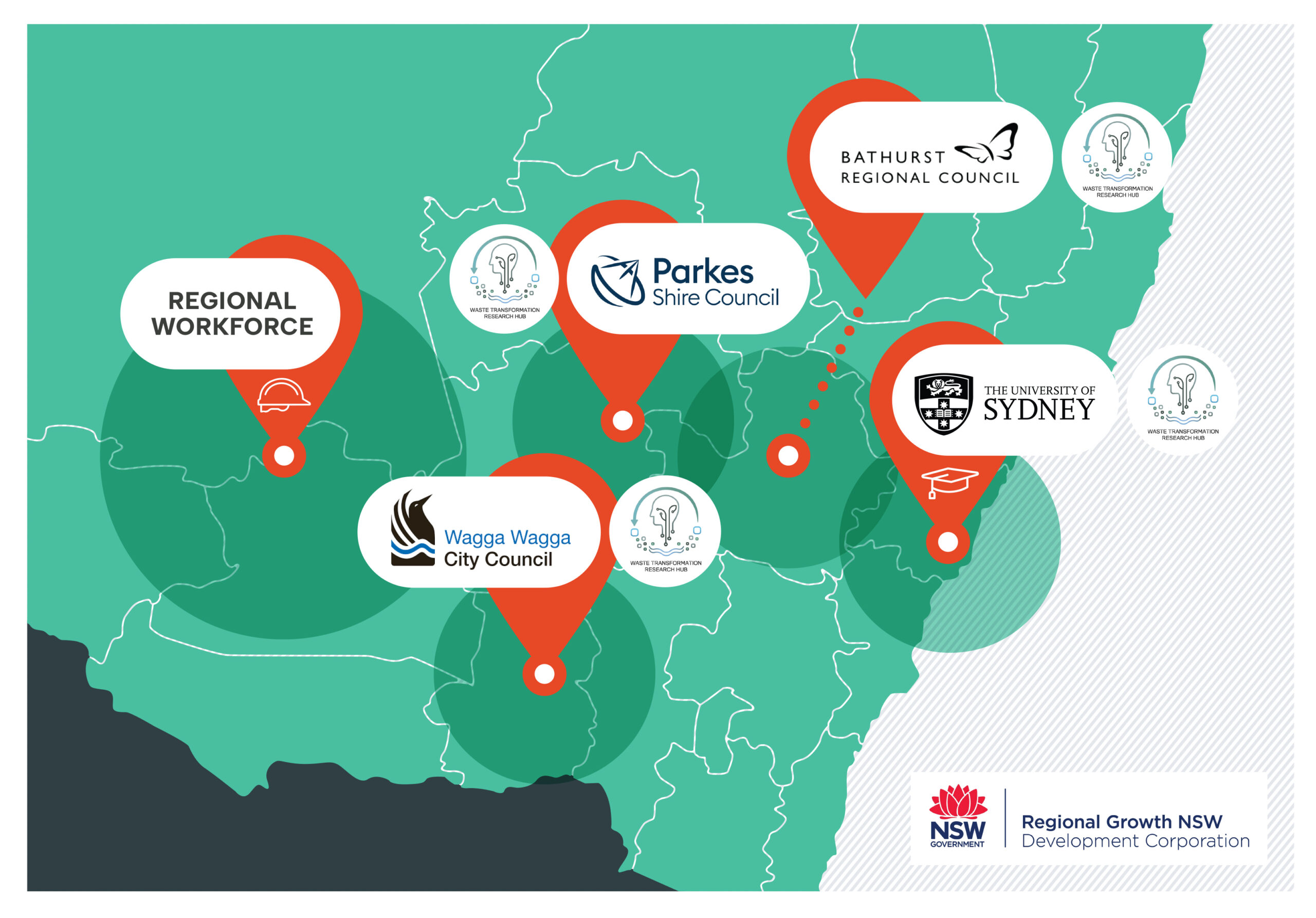
This environment not only supports the technical validation of new innovations, but it also promotes their alignment with environmental and economic sustainability goals.
By situating these technologies within the collaborative and resource-efficient framework of SAPs, the Sandbox enables an integrated approach to innovation in ensuring that new technologies can be seamlessly integrated into the fabric of future industrial practices.
From there, a clear pathway from concept to market emerges
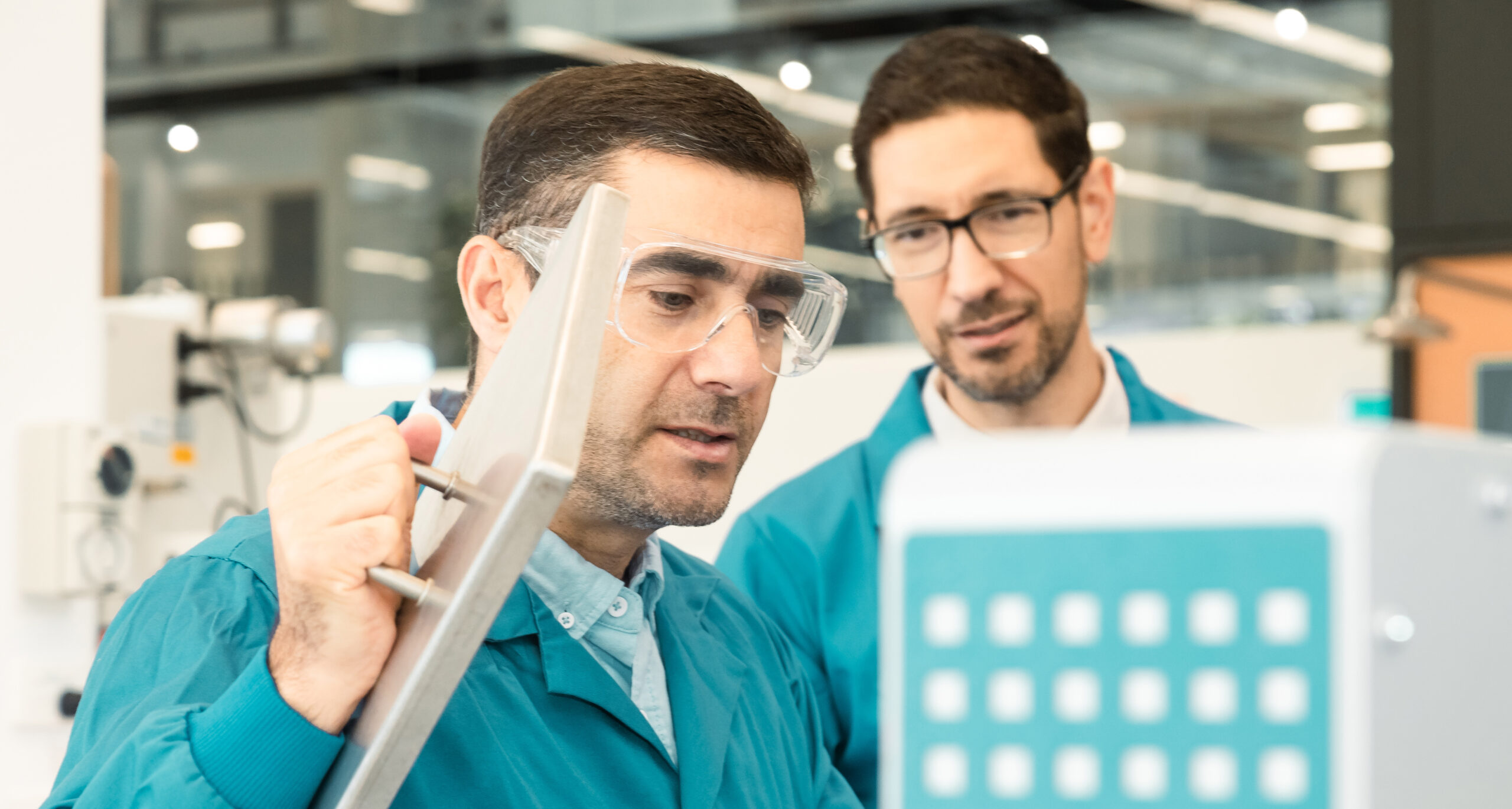
Brains back to the bush
In addition to technologies, people are recognised as a key
success factor of the Sandbox, the Circular Economy Technology Hub, and the region
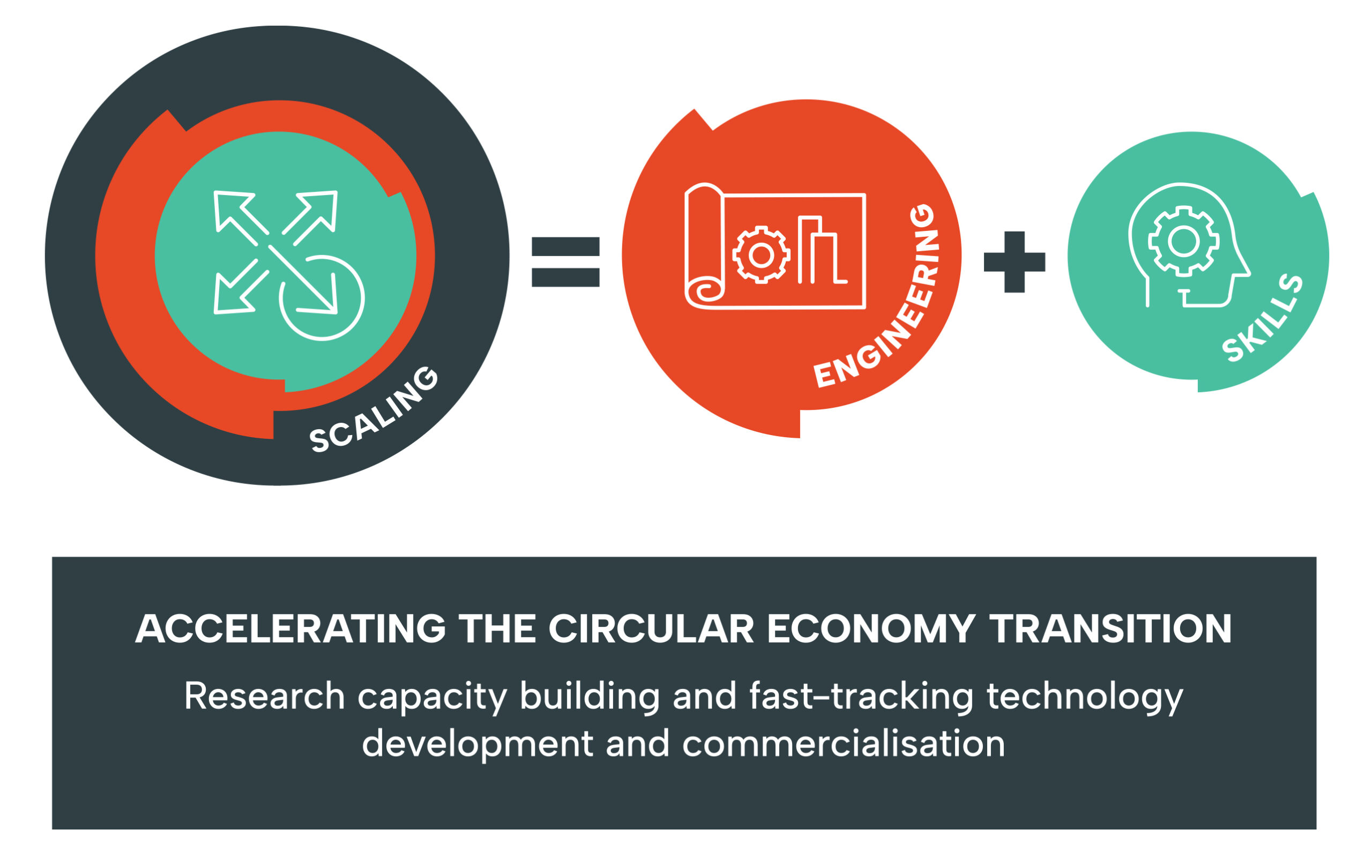
The Sandbox aims at realising the “Brains back to the Bush” vision, set out by Professor Ali Abbas, by building technical capability and attracting talent to regional areas to support the growth and demand in specialist and contemporary process engineering skills. New advanced manufacturing jobs created are expected to draw engineering professionals to Parkes SAP. Additionally, the skillsets are expected to be retained in the regions following successful scale-up and commercialisation of new technologies piloted at the Sandbox.
Empowering Future Generations
Due to the Sandbox’s unique position at the forefront of emerging clean circular technologies in NSW, science, technology, engineering, and mathematics (STEM) training will also be conducted in partnership with NSW Department of Education for high school teachers and students alike. The continual evolution in the STEM industries calls for the need to ensure teachers are equipped with adequate understanding to pass on the knowledge and motivate students, and for students to be introduced to new concepts in an age-appropriate manner.
Closing the Gap
To strengthen relationships between Aboriginal and Torres Strait Islander peoples and non-Indigenous peoples, as well as promoting equality and equity in our communities, the Sandbox will implement an Indigenous Training Program to provide education and training in process engineering, and placement at the Sandbox to Aboriginal and Torres Strait Islander peoples, students, and teachers. There will be demonstrations to inspire them to strive for qualifications and careers in the process and manufacturing industries.
Community and government support
The CETH and Clean Tech Sandbox are supported by Regional Growth NSW Development Corporation (RGDC) and Parkes Shire Council, who will provide streamlined planning approvals and a wide network of local industries.
The project has carried out extensive consultation and engagement activities with Council and NSW Environment Protection Authority (EPA) to maximise use and benefits from the facility.
Ongoing engagements with EPA will also serve to align Sandbox activities and outputs with the State’s strategic direction for transitioning to the Circular Economy. The Sandbox team will develop the STEM Training Programs with the Department of Education, ensuring alignment and enrichment with the current curriculum.
The Indigenous Training Program will be supported by the University of Sydney’s Indigenous Strategy and Services portfolio. Circular Australia plays a pivotal strategic role in the Circular Economy Technology Hub and Sandbox project, facilitating networking across community, industry, and government.
Their efforts centre on forging partnerships that open new business opportunities, including drawing new clients to the Sandbox. Their engagement from the project’s inception, including financial backing for the Circular Economy Technology Hub digital pillar, underscores their dedication to advancing Circular Economy practices and innovation.
Get involved
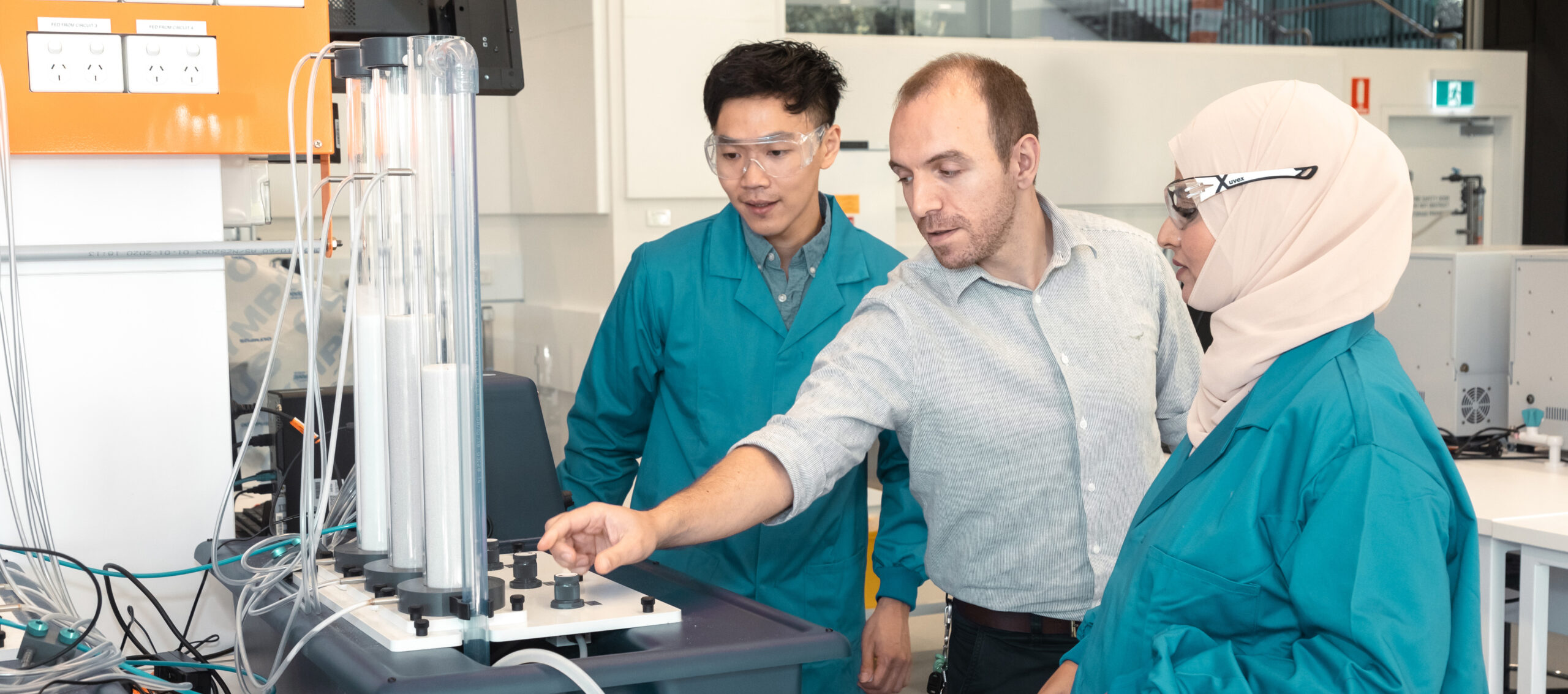
The Sandbox offers numerous compelling ESG benefits:
Economic
Attract investment onshore, derisk technology commercialisation, and create more technical jobs in regional NSW
Environmental
Improve resource efficiency, accelerate clean circular technologies, establish environmental monitoring, assessment, and compliance mechanisms to ensure adherence to regulations, standards, and sustainability goals
Governance
Encourage ethical leadership and transparency, and foster constructive collaborations between government agencies, industry partners, investors, and communities
Technical
Bridge the process engineering knowledge, data, and infrastructure gap by leveraging learnings from the Waste Transformation Research Hub at the University of Sydney, as well as the team’s long-standing expertise in developing pilot plants.
Social
Develop and diversify regional workforce, and promote health, safety, and well-being of employees, stakeholders, and the broader community
